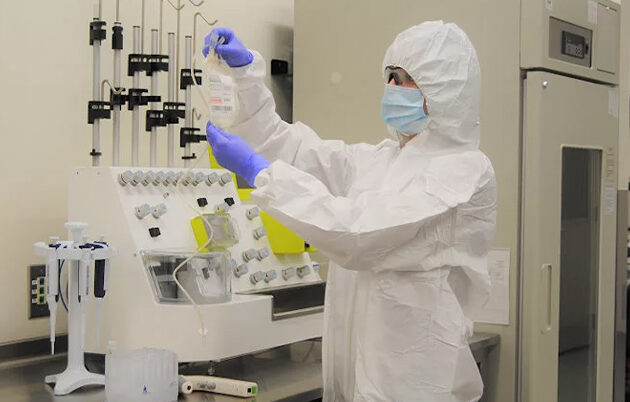Dear Chairperson Jacque and members of the committee:
Thank you for the opportunity to appear before you today. I am the dean of the University of Wisconsin School of Medicine and Public Health, and also serve as chair of the UW Hospitals and Clinics Authority, known as UW Health. I am joined by Dr. Laurel Rice, Chair of our Department of Obstetrics and Gynecology, Tricia Kvitrud, Senior University Legal Counsel at UW-Madison, and Kelly Wilson, Senior Vice President and Chief Legal Officer for UW Health. We strongly oppose Senate Bill 260 (SB260).
According to the Legislative Reference Bureau’s analysis, SB260 prohibits any UW System employee or employee of UW Hospitals and Clinics Authority, within the scope of their employment, from performing abortions; from providing or receiving training in abortions; and from performing any services at a private facility where abortions are performed. The legislation also prohibits the UW System and the Authority from using any resources to make arrangements or to contract with other facilities for employees to participate in those activities at those facilities.
The legislation before you is a serious threat to the future of our OB/GYN residency training program. If passed, our program will be non-compliant with the national accreditation requirements of the Accreditation Council for Graduate Medical Education (ACGME) — the nation’s only accrediting body for OB/GYN residency training programs. Failure to comply with training requirements will lead quickly to a citation, and then to the loss of accreditation. This understanding is based on years of working with the ACGME, as well as written statements we have received from ACGME leaders, including a letter from Dr. David Jaspan, Chair of the Review Committee for Obstetrics and Gynecology. In his letter, Dr. Jaspan states the following:
ACGME-accredited obstetrics and gynecology programs are required to provide residents with training in the full scope of obstetrics and gynecology practice. The Obstetrics and Gynecology Program Requirements include a core requirement that “programs must provide training or access to training in the provision of abortions, and this must be part of the planned curriculum.” To comply with this requirement, the University of Wisconsin Hospitals and Clinics Obstetrics and Gynecology Residency Program must provide residents with clinical education in induced abortion at one of the institution’s own sites or make arrangements at another institution. Residents with religious or moral objections may opt out of this experience.
Programs that fail to comply with this requirement are subject to a citation. Citations put programs at risk for withdrawal of accreditation.
Proponents of SB260 argue there is proof our accreditation is not in jeopardy based on their interpretation of various circumstances outside of Wisconsin. We vehemently disagree with their assertion that our accreditation is not at-risk under the terms of SB260. We offer the following for your consideration.
Arizona law does not mirror SB260.
- Arizona law does not mirror the statutory change outlined in SB260. While the two states both currently prohibit the use of state resources for performing abortions, SB260 would exceed the prohibitions in AZ law by prohibiting the activity of providing abortion services, or training or receiving training in abortion services by state or public authority employees, regardless of whether state funds are used or not.
- If Arizona did pass a law similar to SB260, it would not impact the Arizona program because its OB/GYN residents and most of their faculty physicians are employed by a private health system, Banner Health, for their clinical care activities. Banner Health’s privately-employed physicians could still perform otherwise legal abortions for their patients and could train Banner Health’s privately-employed residents as required by the ACGME if Arizona passed a law as restrictive as SB260 because such a law simply wouldn’t apply to them.
The Coats amendment does not override the ACGME.
- It has been stated that the Coats amendment would override the ACGME’s ability to revoke our accreditation. This clearly is not the case. ACGME is not bound by the Coats/Snowe amendment (42 USC ss238n). Coats/Snowe is directed at federal and state governments that receive federal funding, not at private, non-governmental accreditation organizations such as the ACMGE. In fact, the statute specifically states that it does not prohibit accrediting bodies from setting their own competency standards.
- Some have suggested residents can moonlight and get the required training on their own time. This is not an option because it does not meet the ACGME’s definition of “planned curriculum.”
- The ACGME does not allow for an “Opt-In,” which some have suggested we consider as a work around to the abortion training requirement. We fully support the ACGME standards that allow OB/GYN residents with a moral or religious objection to abortion to opt-out of the training; however, we are required to provide abortion training as an optional component of our planned curriculum.
OB/GYN residency programs are not allowed to develop workarounds to providing the ACGME-required training.
The threat SB260 poses to our OB/GYN residency program’s accreditation is real. We have gone to great lengths to make sure our program aligns with Wisconsin law. Per Wisconsin Stat § 20.927, GPR is not to be used for the performance of an abortion. To that end, our OB/GYN residents are paid a stipend, just like all residents, but another health system pays for the training they receive to meet the ACGME requirements. These funds are not transformed into GPR funds simply because we serve as a conduit for the payment. Furthermore, our faculty physicians who work directly with the residents to educate them have that component of their time and effort, plus liability coverage for that specific activity, paid by the facility where the training in abortion services, family planning, and health screenings for breast and cervical cancers takes place.
Under the terms of SB260, the shortage of OB/GYNs available to serve the citizens of Wisconsin will worsen as the number of residents trained in this specialty will be reduced by more than one-third. This is exactly the last thing Wisconsin needs. Data from the American Medical Association indicates 29 of Wisconsin’s 72 counties have only one OB/GYN or none at all. To address the state’s shortage and in advancing our commitment to promote the health and safety of Wisconsin residents, particularly in rural areas, UW Health has expanded our number of residency slots for Obstetrics and Gynecology outside of the Graduate Medical Education cap. We pay to train these additional residents without the customary federal support because we believe Wisconsin women should have access to high quality obstetrical care. Our commitment and innovation have garnered national attention for the UWSMPH Rural OB-GYN Residency program, which is the first of its kind in the nation. Interest in the program has been unprecedented; hundreds of applications have been received for four slots. We select applicants who have had meaningful experiences with rural communities and demonstrate an enduring commitment to providing health care to women in rural Wisconsin. Rural track residents rotate during their last two years at hospitals in Portage, Monroe, Waupun, and Baldwin, which is a tremendous advantage to the communities they serve. The passage of this bill would dramatically damage, perhaps eliminate the applicant pool for our residency program since applicants and their advisors will be aware of the likelihood of a citation as the initial step towards loss of accreditation.
I would like to clarify a point of confusion that has been propagated during earlier discussions of this bill. Our concerns about the loss of accreditation apply to the national accreditation requirements for our OB/GYN residency program and not to our medical student program. Training experience in abortion services is not required for medical student program accreditation, in contrast to OB/GYN residency programs. In fact, we made an institutional decision not to provide training experience in abortion services to our medical students. This difference explains some of the survey data proponents of SB260 have used to argue that “students” are not trained in abortion services at other peer institutions. Resident physicians are not students and again, we do not train our medical students in abortion services.
Finally, we want to point out that the legislation before you, in contrast to its predecessor from the 2017-18 legislative session, contains no exceptions for life of the mother, rape, or incest that currently exist in state law. The statutory construction of SB260 would make it illegal for any UW System-employed physician or UW Hospitals and Clinics Authority-employed resident physician to perform an abortion under any circumstances. Implementation of such an extreme public policy contradicts public opinion. Findings from research conducted at the University of Chicago between 1972 and 2012 consistently show U.S. adults support abortion when the woman’s health is seriously endangered (87%) and in cases of pregnancy resulting from rape (78%). Our greatest concern is always our patients, and this severely restrictive approach puts the health and safety of our patients in jeopardy. It is for this reason and the reasons above we ask you to oppose SB260.
Thank you for your time and attention. We are happy to respond to your questions.


